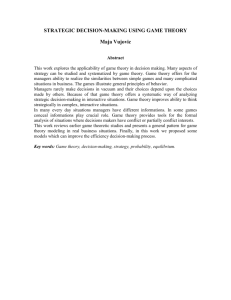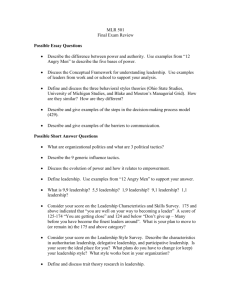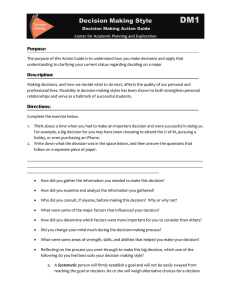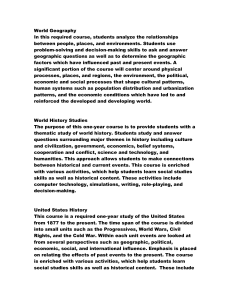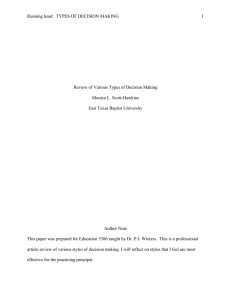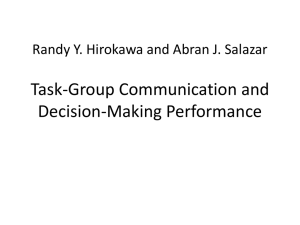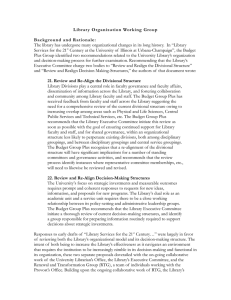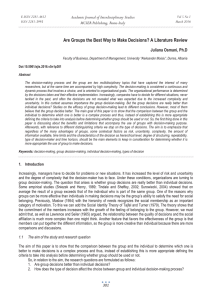Suitable Decision Support for Strategic Decisions
advertisement
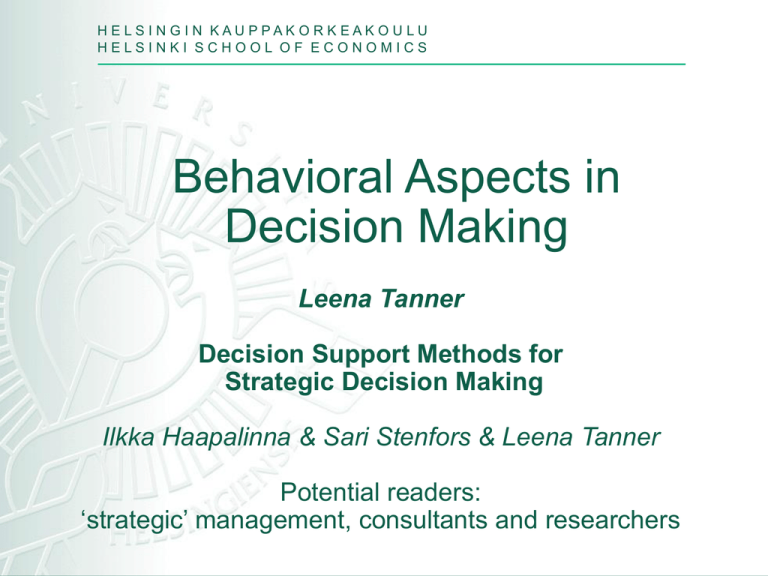
H E LS I N G I N KAU PPAK O R K EAK O U LU HELSINKI SCHOOL OF ECONOMICS Behavioral Aspects in Decision Making Leena Tanner Decision Support Methods for Strategic Decision Making Ilkka Haapalinna & Sari Stenfors & Leena Tanner Potential readers: ‘strategic’ management, consultants and researchers Our primary goal is to support deliberate strategy making Strategy is the logic that governs the choices of a company among all its decision options. The strategic decision-making process may vary in time and scope. Our aim is to analyse the usefulness of the formal decision support in the strategic decision-making process. Problems in analysis of formal methods for strategic decision support in business Strategic decision-making is a complex process with many stakeholders. Strategic decision involves creation, change or retention of a strategy. Essence of strategy development is creativity and dialogue. Certain tools are used but mainstream strategy literature does not acknowledge decision support methods. Reasons for the study & our main ideas Little research has been done to survey a methodologically wide range of potential support systems for strategic decisions in businesses yet! Which existing formal “support methods” offer potential gains in the process of strategic decision-making? Our intentions are: To examine an extensive array of formal and systematic methods that could be used to aid strategic decision-making, and to describe their characteristics and problem type suitability. To consider the methods problem-oriented. Current state of our research Literature review Well over 60 articles of different methods and approaches Methods in use in Finnish companies (a questionnaire) New ideas: Use of multi-methodology in decision-making processes (hard & soft, quantitative & qualitative,..) Not only Material World matters! Both Personal World and Social World should also be regarded as important parts of strategy development. Publishing The article will: Include a literature review on what already exists. Focus on different phases of the strategic decisionmaking process and to evaluate the methods in view of the different strategic thinking schools. Form up an extensive array of formal systematic methods suitable for different phases of strategic decision-making process. We write this article to offer information to managers. We aim to publish the article in a journal that is read not only by academic persons but also by managers as well.

